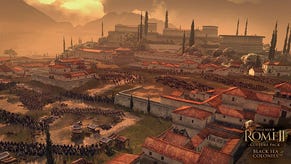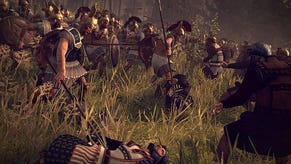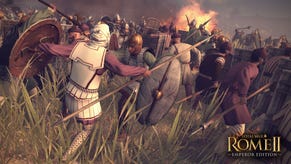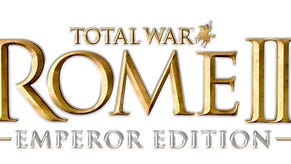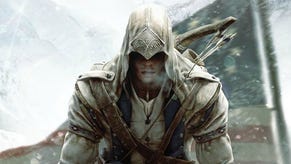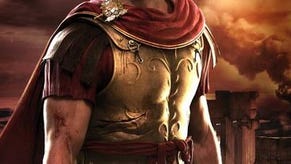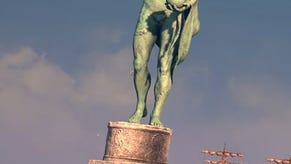Total War: Rome 2 – more personal epic warfare
Total War: Rome 2 brings the epic scale of classical world warfare and makes it personal. Phil Owen is a Machiavellian dictator.
"We like to remind the player that it’s not just a collection of dots crashing into another collection of dots, and this dot has slightly higher stats so this one’s going to fail. You want to go in there and feel that these guys are really struggling for their lives at the behest of some lord somewhere, some Machiavellian dictator, who is actually you."
The Total War franchise has evolved quite drastically since its origins, culminating in a Rome 2 that is half real-time strategy and half grand strategy, giving the player more control over what is going on in a digital world than any of its predecessors.
But Rome 2 isn't just about the big picture, and what the team at The Creative Assembly has brought to the table this time that intrigues me the most is, in fact, the little things. I'll allow Rome 2's lead battle designer Jamie Ferguson to explain.
“Basically, what we've done is updated and improved methods that we use for creating variation and randomization in each unit and across the different units,” Ferguson told me at E3.
“So, for example, Roman soldiers you'll notice that the shield designs are different per unit, rather than them being like in the barbarian factions where every single shield is different.
“Also, the way that the armor and equipment looks broken and chipped. It looks like it's worn with use, mixed and matched ad hoc. It means that no one shield is like any other shield; no sword is like any other sword; no piece of armor is like any other piece of armor. The basic design is the same, but then there's little individual touches that make them feel very, very different.”
But what's the point of doing this? Ferguson insisted that adding these bits of detail hasn't affected performance demands, but I still had to ask why deal with elements like these in a game that is all about pulling back the camera for a wide shot.
“We want the players to see that and realize there's essential individuality in there. There's a human face to everything that's going on,” Ferguson said.
“It's not just these vast, massive armies. Each one of these guys is an individual. You'll have them screaming and shouting as they get owned in combat. Some of them will be making little side remarks to the guy next to them about what's going on.
“It was about humanizing the whole experience. Making people understand that it's not just about war; it's about people. It's the experiences that they have.”
From talking with Ferguson and campaign designer Dominique Starr I got the impression that what we were discussing at that point was something they'd given considerable thought to, and what Starr chimed in with next was quite, um, provocative.
You see, he showed me what he saw as the big picture behind these little details.
“[Referring to the soldiers on the battlefield] You're literally throwing yourself into a death situation. Often death, and life if you're lucky,” Starr said.
“We like to remind the player that it's not just a collection of dots crashing into another collection of dots, and this dot has slightly higher stats so this one's going to fail. You want to go in there and feel that these guys are really struggling for their lives at the behest of some lord somewhere, some Machiavellian dictator, who is actually you.”
“How do you feel about sending these guys to their doom?” Ferguson asked. “You understand that these people are individuals. They may be part of a giant unit of soldiers, but at the same time the things you're asking them to do are actually severe.
“It's an emotional experience. And all your actions have consequences even on the campaign map. The choices that you make, that's how the other factions see you.”
Starr then explained what exactly Ferguson meant by that last comment. “If you go around looting and razing cities to the ground, people will be like, 'What's your problem?' Even people who liked you will dislike you, or people who already disliked you will hate you even more. You will not be able to survive, pretty much.”
This was all very fascinating to me, and to be quite honest it sounded like they had something to say with all this stuff. So I asked straight up if what they were describing was intended as some sort of social commentary.
“You can read into it how you like,” Starr said.
Total War: Rome 2 is due on PC on September 3.



